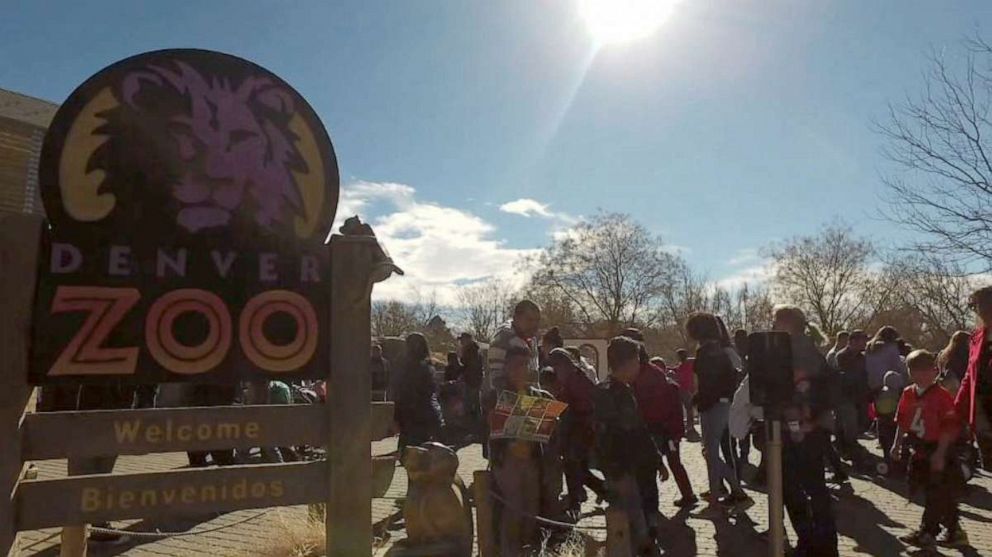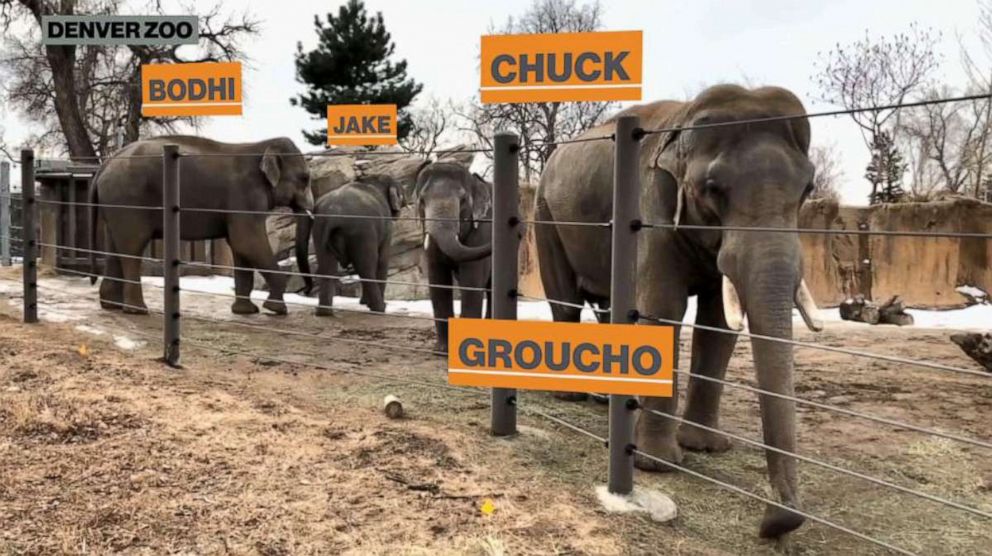ABC News follows Denver Zoo’s 2 newest rare Asian elephants as they adjust to life in the Mile High City
There are currently only about 35,000 Asian elephants left.
With less than 35,000 Asian elephants left in the world, the Denver Zoo has made a mission out of housing and study these mammoth-sized animals, in hopes of saving the species from extinction.
In September, the Colorado-based zoo and its team of elephant keepers welcomed two new residents to life in the Mile High City. The addition of 10-year-old Chuck and 9-year-old Jake made the Denver Zoo’s elephant program the largest bachelor herd of Asian elephants in North America.
Chuck and Jake, who had outgrown their previous enclosure in Canada, spent nearly six months working with the zoo’s keepers on their training philosophy.

“We don’t do any tricks or anything that would just be considered for entertainment purposes," explained Elephant Keeper Jeff Stanton. "We ask the elephants to do behaviors that help us take better care of them.”
Nearly six months after arriving at the zoo, Chuck and Jake were finally introduced to the Zoo’s three other male elephants, Groucho, Bodhi and Billy.
“It was one of those moments that makes all of the day to day things – all of the paperwork, all of the transports, all of the monitoring and healthcare all totally worth it to see the five bulls blending well together,” said Maura Davis, assistant curator of elephants for the Denver Zoo.

The zoo, which was specifically built to house multiple male elephants, will spend the next several years studying and documenting the Asian elephant herd, with the hopes of ultimately sharing that research with the elephant community around the world.
“Male elephants are really difficult to study in Asia. There’s not a lot of them, they live in dense forests and they’re dangerous,” said David.
“We are continuing to look into research projects that we can provide to the community. Information that will hopefully not only help management of elephants in North American and in zoos in Europe, but hopefully we can learn some information about these guys that isn’t known… so [that] we’re able to provide a lot more information from a day-to-day standpoint and really minimize the risk to get that information,” added Davis.




